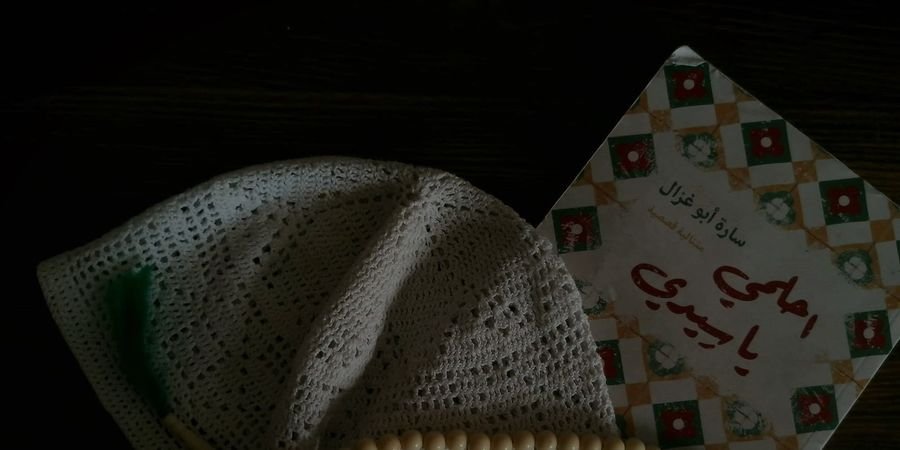A propos
In the last chapter of Ihlami Ya Sidi, a novel by Sara Abou Ghazal, Najmeh's recalling of the 1948 dispossession takes the form of dreams. Through Najmeh's dreams, we enter the often invisible side of forced and violent exile. Najmeh recounts her dreams because they enable her to tell her story with the intimacy and vulnerability it requires. It allows her to return home to her village's unique accent.
As she shares her dream, the trinity of Najmeh becomes apparent: at once narrator, dreamt persona and the embodiment of memories. Invoking Najmeh's indigenous accent of the muthalth, the dreams turn into archival objects, the stage becoming a space to recover a bygone home, where time is tempered with to melt the borders between past and present.
30 minutes
in Arabic with English subtitles
Dima Issa-Daibes is a Palestinian-Belgian socio-cultural organiser at Lagrange Points. Born in Belgium and raised in Palestine, Dima uses this in-betweenness to create connections and necessary conversations around cultural exchange, the self as a political sphere, and storytelling. Dima Issa-Daibes and Lagrange collectively organise a place where exile becomes a shared experience, a momentary yet ongoing creation of homeness and familiarity.
Sara Abou Ghazal is a feminist Palestinian writer from Beirut based in Brussels. She is the author of Ihlami Ya Sidi, published by Khan al Janub, and the upcoming novel King of the New Road. Sara's fiction work revolves around women's oral histories and archives, and has appeared in numerous Arab literary magazines and websites.
—
Cast: Dima Deabis, Sarah Kadri
Ideation: Dima Deabis
Dramatization: Sara AG
Picture: Sara Aboughazal
Thanks to Rand Abufakher, Rasha Helweh, Dounia Salame, Firas abouDabouseh
